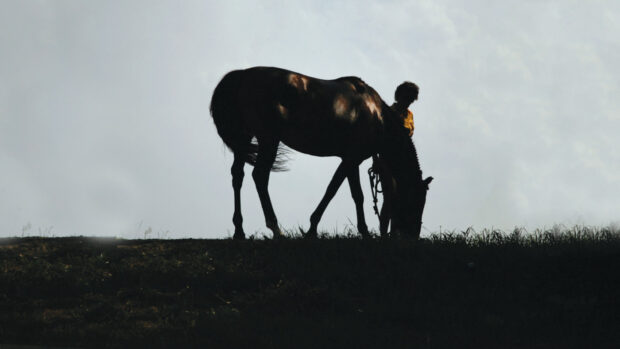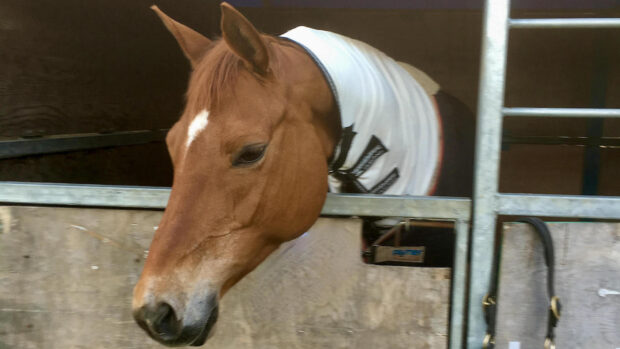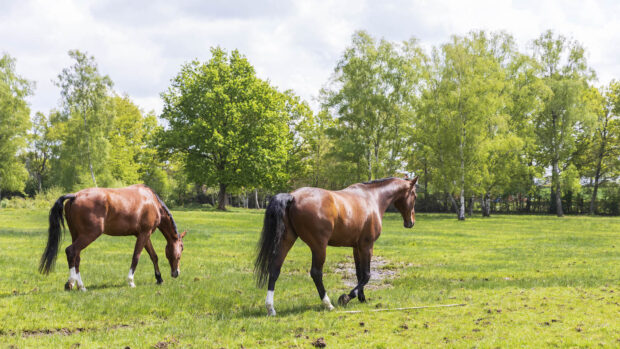RESEARCH into salivary indicators has suggested that in the future, scoping may not be necessary to confirm or rule out gastric ulcers.
This is the objective, and not an imminent possibility, but the pilot study, published in Animals, found that certain substances in equine saliva could “potentially be assessed as biomarkers in horses with gastric ulcers”.
Between February 2020 and May 2021, samples were taken from horses diagnosed with ulcers at the Large Animal Teaching Hospital at the University of Copenhagen and the Veterinary Teaching Hospital of the University of Extremadura, Spain. Samples were also taken from horses presented at the hospitals without signs of ulcers, and who had scoped clear.
It was found that the horses with ulcers, or colic, showed changes in certain biomarkers.
“This report has some limitations and, therefore, should be considered as a pilot study,” the study states, adding that “the possible stressful situation of being in a new place could influence our results”. It said the results should be considered preliminary, and further research should look at higher numbers of horses.
“In addition, further studies should be performed to evaluate whether these oxidative status changes in horse saliva and serum are only observed in gastrointestinal diseases or other types of diseases not related to the gastrointestinal tract,” it said.
But the report concluded that the results indicate, for the first time, that there is potential to measure certain analytes, or substances, in equine saliva and could be biomarkers.
“The evaluation of these analytes has advantages associated with the use of saliva, such as easy, non-painful, and non-invasive collection, and the possibility to be obtained in field conditions, with repeated sampling, producing minimum discomfort and anxiety.”
Lead author María Dolores Contreras-Aguilar told H&H the idea was to look for possible biomarkers that could rule out ulcers or show that a horse needed to be scoped.
David Rendle, chair of the British Equine Veterinary Association’s health and medicines committee, told H&H that from a theoretical perspective, it is an interesting study.
“It confirms that saliva sampling in horses can be used to identify the oxidative stress that typically accompanies inflammation,” he said. “However, from a practical perspective it doesn’t change how vets will investigate gastric disease or colic. Oxidative stress can accompany any inflammatory disease and a saliva test is unlikely to be able to differentiate where the inflammation is located. The use of markers of oxidative stress has been investigated in a number of disease states and hasn’t resulted in diagnostic tests that have been useful in the field.
“Identification of the presence of gastric disease or colic is only part of the clinical process; vets also need to assess the precise nature and severity of disease to determine appropriate treatment options. For both gastric disease and colic there are multiple treatment options and a saliva test is not going to be able to provide the level of information that can be gained from gastroscopic examination of a horse’s stomach or a full clinical examination.
“Furthermore, these saliva tests don’t identify the presence of squamous gastric disease which in some populations, including racehorses, is the primary gastric disease of interest.
“Interesting findings but it is hard to see that they will have any practical implications in the short, and probably long, term.”
You might also be interested in:

The best way to feed a horse to avoid gastric ulcers
Read advice from a range of experts on how to best feed a horse with gastric ulcers

Joint medication and ulcer signs: top vets’ views on potentially controversial equine health topics

Subscribe to Horse & Hound magazine today – and enjoy unlimited website access all year round
Horse & Hound magazine, out every Thursday, is packed with all the latest news and reports, as well as interviews, specials, nostalgia, vet and training advice. Find how you can enjoy the magazine delivered to your door every week, plus options to upgrade your subscription to access our online service that brings you breaking news and reports as well as other benefits.






